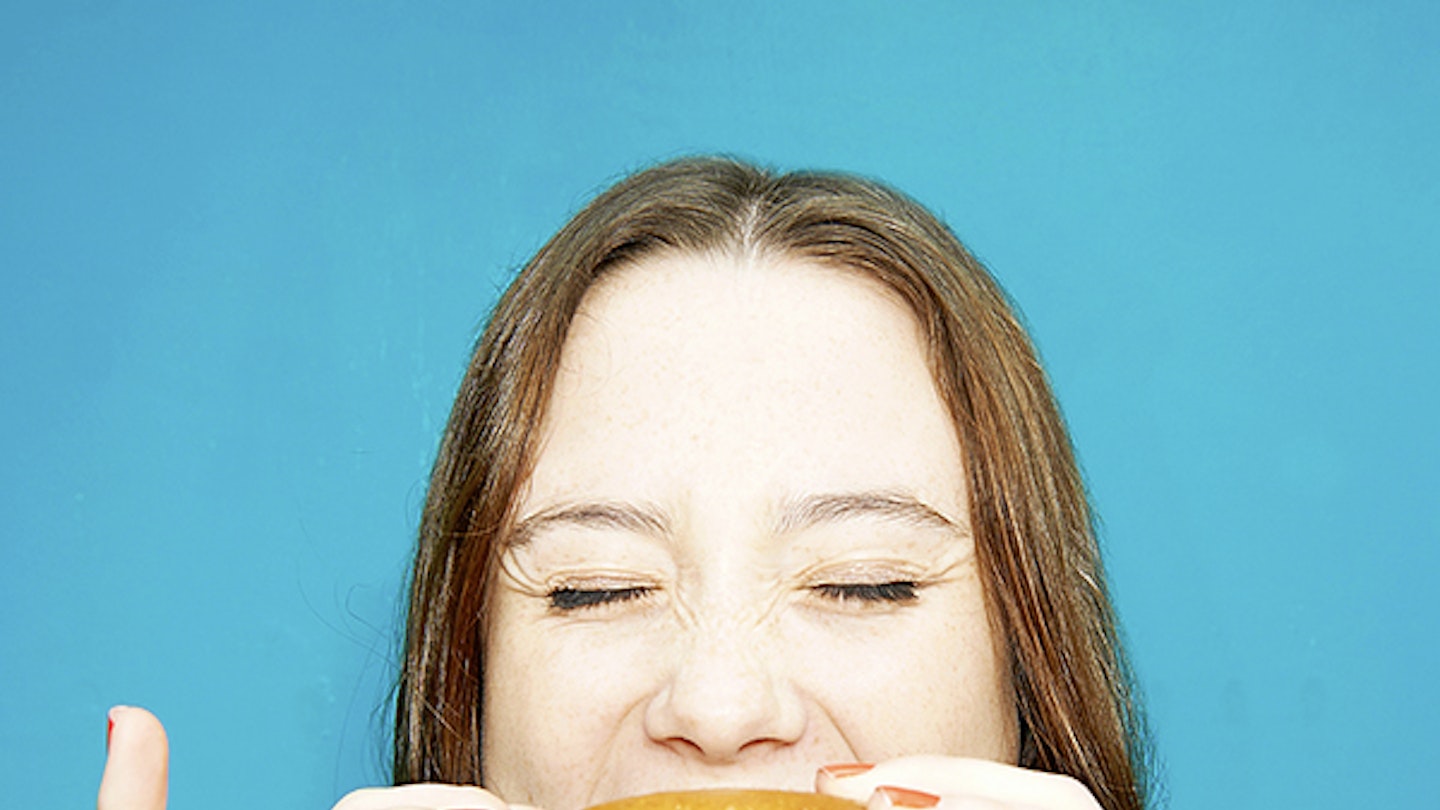As many as one in five of us has a food addiction. But would you know the signs?
A recent report revealed that up to 20 per cent of us have addictive food and eating behaviours, with the majority falling in the severe end of the spectrum.
Bestselling author of Natural Alternatives to Sugar, Dr Marilyn Glenville, says: ‘Years ago, a piece of chocolate was a treat, something you had once a week, because of financial constraints and availability.
Now, foods high in fat and sugar are available on every street corner and it’s hard for people to resist.’

Perhaps it’s no wonder then that food addiction is at its peak.
Here’s how to tackle this growing problem…
WHAT IS FOOD ADDICTION?
When a food addict has a craving, they eat more than they intend to, to the point of feeling overfull, and then feel guilty about it.
It can be thought of as an eating disorder, much like anorexia, bulimia or binge- eating, as it’s an unhealthy relationship with food.
Often, there’s an emotional root cause to it. Food addicts don’t just eat because of hunger, they eat to fill a void and relieve stress — often reaching for chocolates, sweet treats, high-fat fried foods or fizzy drinks which affect the reward centre in the brain, much like drugs.
Yet tackling food addiction head-on will reduce your risk of type 2 diabetes, cancers associated with obesity, heart attack, stroke, high blood pressure, heart disease, as well as boosting your self-esteem and leaving you feeling much happier.
SYMPTOMS OF FOOD ADDICTION
You’re not hungry but you crave certain foods, even to the point where you’d drive somewhere just to get your hands on it.
You eat a high quantity and feel guilty.
You may suffer malnutrition, as a person can be overweight and have nutritional deficiencies.
You may be hiding your stash or eating in secret.
WHY STOP IT?
Some people recognise changes in body weight or may encounter health problems like type 2 diabetes, as well as a negative impact on their quality of life, relationship with their partner or children.
Whatever the reason to stop, it’s important the time is right for you, almost like deciding to quit smoking.
HOW TO SOLVE IT
Recognising there’s a problem is the first step. It can be helpful to keep a food diary, jotting down what you’re eating and why. Is it because you’re hungry, or because you’re stressed or upset?
Next, look at your routines. Do you walk past a bakery every morning and buy a sausage roll? Is there a different route you can take to eliminate the temptation?
Changing your habits is a great move too. If you binge on chocolate when watching TV, start a new hobby that’ll get you off the sofa in the evenings. Be aware that most unhealthy eating happens late at night.
TOP TIP: Even if your food addiction has caused weight gain, at this early stage in recovery, losing weight is not the goal. Do not go on a diet to tackle food addiction.
Speak to your GP, who may be able to refer you to an NHS counsellor or nutritionist who can help with a proper food plan.
CRACKING THE ADDICTION
Talking therapy can be really helpful. It will help you to identify triggers, which foods you crave, how to think about hunger in a healthy way and how to eliminate triggers.
Combining cognitive behavioural therapy and neuro-linguistic programming is a powerful way to get to the root cause. You can speak to your GP to see about a referral.
Free groups like Overeaters Anonymous can be beneficial and provide an extra layer of help with group support.
Simple ways to HELP YOURSELF
Read food labels and don’t buy or eat things with added sugar.
Make a trip to your local health food shop for snacks with no added fat or sugar.
At breakfast, ditch sugary cereals and have egg on toast instead. Eat nutritionally balanced lunches and dinners, packed with fibre, protein and complex carbs to stop your blood sugar levels crashing.
In the first wave of weaning off addictions such as chocolate, snack on raw cacao instead. It’ll give you a small taste of what you crave without the high sugar and fat content.
Edited by Punteha van Terheyden
For more information, visit marilynglenville.com
